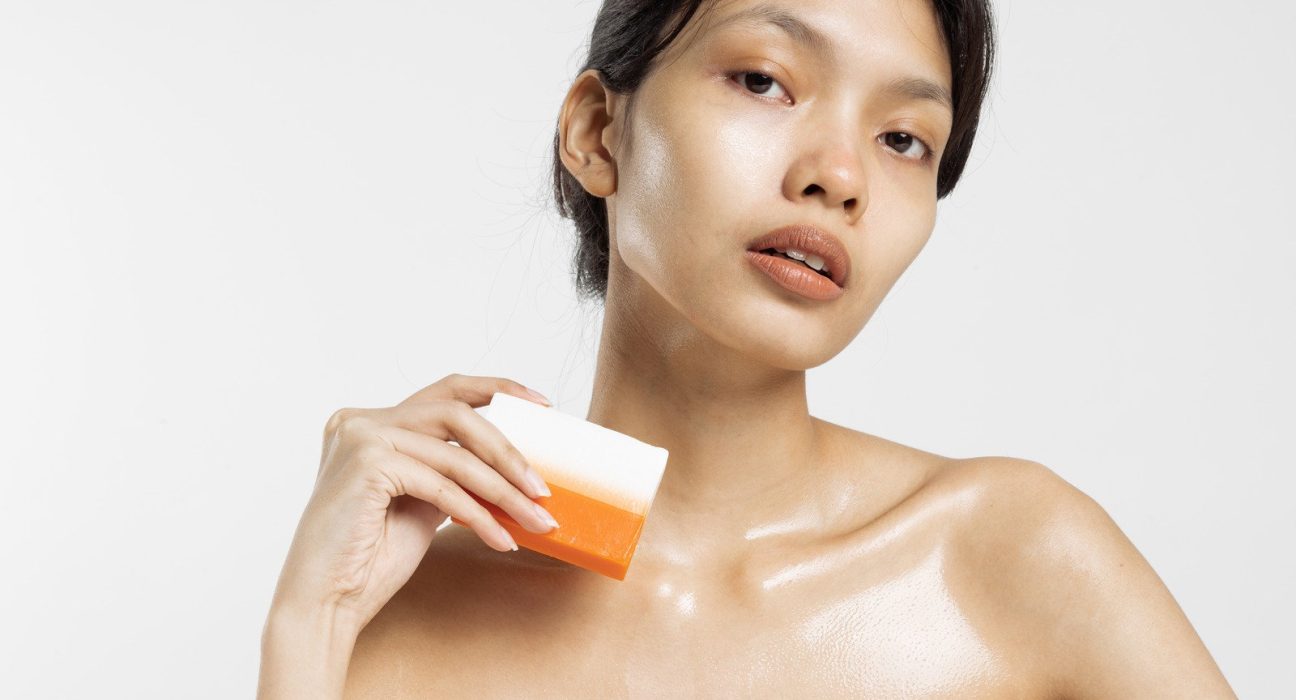Introduction
Welcome to the ultimate guide to achieving flawless, glowing skin! We all dream of having a complexion that radiates beauty and confidence. However, with so many skincare products and routines available on the market, it can be overwhelming to determine what works best for our unique skin type. Fear not – in this comprehensive guide, we will unlock the secrets to perfect skin by exploring the different types of skin, discussing basic skincare routines and products, highlighting natural options, and offering tips on how to purchase effective skincare products. Get ready to say goodbye to dullness and hello to stunningly beautiful skin!
The Different Types of Skin
Understanding the different types of skin is crucial for developing an effective skincare routine. Firstly, there’s normal skin which has a good balance of oil and moisture levels. On the other hand, dry skin lacks natural oils leading to flakiness and tightness; while oily skin produces excess sebum resulting in shiny skin and clogged pores.
Combination skin is a mix of both oily and dry areas on the face, making it quite challenging to address all concerns at once. Sensitive skin can be easily irritated by certain ingredients or environmental factors like pollution or sun exposure.
Aging or mature skin requires specialized care as collagen production decreases with age causing fine lines, wrinkles and sagging. Identifying your specific type of skin is essential for choosing appropriate products that cater to your needs without exacerbating any existing issues.
The Basics of a Skincare Routine
Taking care of your skin is an essential part of maintaining overall health. A basic skincare routine should consist of cleansing, toning, and moisturizing.
Cleansing removes dirt and impurities from the skin’s surface, allowing it to breathe and absorb nutrients effectively. Choose a gentle cleanser that suits your skin type and avoid harsh soaps or scrubs that can damage the delicate facial tissue.
Toning helps restore the skin’s natural pH balance after cleansing while also providing additional hydration benefits. It also prepares your face for better absorption of subsequent skincare products such as serums or creams.
Moisturizing is necessary to keep the skin hydrated throughout the day. Use a lightweight formula during daytime hours with SPF protection if possible, followed by a more nourishing option at night time to aid in repair and rejuvenation processes.
It’s crucial to understand your own specific needs when creating a skincare routine. Consider factors like age, climate, genetics, hormonal changes or any existing concerns you may have (such as acne-prone or sensitive skin). By tailoring this vital practice towards what works best for you individually will help achieve optimal results over time.
The Different Products Available for Skincare
When it comes to skincare, there are a plethora of products available in the market. But with so many options, it can be overwhelming to choose the right one for you. Here’s a breakdown of some common skincare products and what they do.
Cleansers: The first step in any skincare routine is cleansing. Cleansers help remove dirt, oil, and makeup from your skin. Look for a gentle cleanser that suits your skin type – whether oily, dry or sensitive.
Toners: Toners are used after cleansing to restore the skin’s pH balance and prepare it for moisturizing. They also help tighten pores and reduce inflammation on the skin.
Serums: Serums contain active ingredients like antioxidants or vitamins that penetrate deep into the skin to address specific concerns such as fine lines or uneven texture.
Moisturizers: Moisturizers provide hydration to keep your skin soft and supple throughout the day. Choose one based on your skin type – oily or dry.
Sunscreen: Sunscreen is crucial in maintaining healthy-looking youthful skin by protecting it from harmful UV rays which cause premature aging and damage our DNA causing deadly cancers.
Taking care of our complexion can become an enjoyable process when we know what we’re doing! Understanding different types of facial products could give us just enough knowledge about how each product works which would allow us to select suitable skincare items fitting our needs perfectly!
Natural Skincare Options
Natural skincare options have become increasingly popular in recent years, as people are becoming more aware of the potentially harmful chemicals that can be found in traditional skincare products. Many natural ingredients have been shown to have beneficial effects on the skin, such as reducing inflammation and promoting healthy cell growth.
One popular natural ingredient is aloe vera, which has anti-inflammatory properties that can help soothe irritated skin. It also contains antioxidants that can protect against free radicals. Another natural option is tea tree oil, which has antimicrobial properties and may be effective at treating acne.
Honey is another great natural skincare option, as it has moisturizing and antibacterial properties. It may also help reduce redness and irritation on the skin. Other natural ingredients to look for include chamomile, lavender, and jojoba oil.
When using natural skincare products, it’s important to read labels carefully and do your research to ensure that you’re getting high-quality products with effective ingredients. Some companies may use only small amounts of natural ingredients or include other questionable additives alongside them.
Incorporating some natural skincare options into your routine can be a great way to support healthy skin without exposing yourself to unnecessary chemicals or harsh treatments.
What to Consider When Purchasing Skincare Products
When it comes to purchasing skincare products, there are a few things you should consider to ensure that you’re getting the best product for your skin type and needs.
Firstly, take note of the ingredients. Be sure to avoid harsh chemicals such as sulfates and parabens which can irritate or damage the skin. Opt for natural ingredients like aloe vera, tea tree oil, and chamomile which have anti-inflammatory properties.
Secondly, assess your skin type before making a purchase. If you have oily or acne-prone skin, look for products with salicylic acid or benzoyl peroxide. For dry or sensitive skin types, opt for gentle formulas with hydrating ingredients like hyaluronic acid and vitamin E.
Thirdly, read reviews from other customers who have used the product before. This can give you an idea of how effective it is and if it has worked well for others with similar skincare concerns.
Consider your budget but don’t let price be the sole determining factor in your decision-making process. Sometimes investing in high-quality skincare products can save money in the long run by preventing future damage to your skin.
By considering these factors when purchasing skincare products, you’ll be able to find ones that work best for your unique needs and achieve perfect-looking skin!
Conclusion
Having perfect skin is not an impossible feat to achieve. With the right skincare routine and products, anyone can have beautiful, glowing skin. It is essential to understand your skin type and choose products that work best for you.
Remember that consistency is key when it comes to achieving perfect skin. Make sure to follow a daily skincare routine with gentle products suitable for your specific needs. Don’t forget to protect your skin from harmful UV rays by using sunscreen every day, even on cloudy days.
Don’t be afraid to experiment with natural skincare options and find what works best for you. Always consider the ingredients used in each product before purchasing and read reviews from other users.
By following these tips mentioned above, you will be well on your way towards unlocking the secrets of perfect skin!












